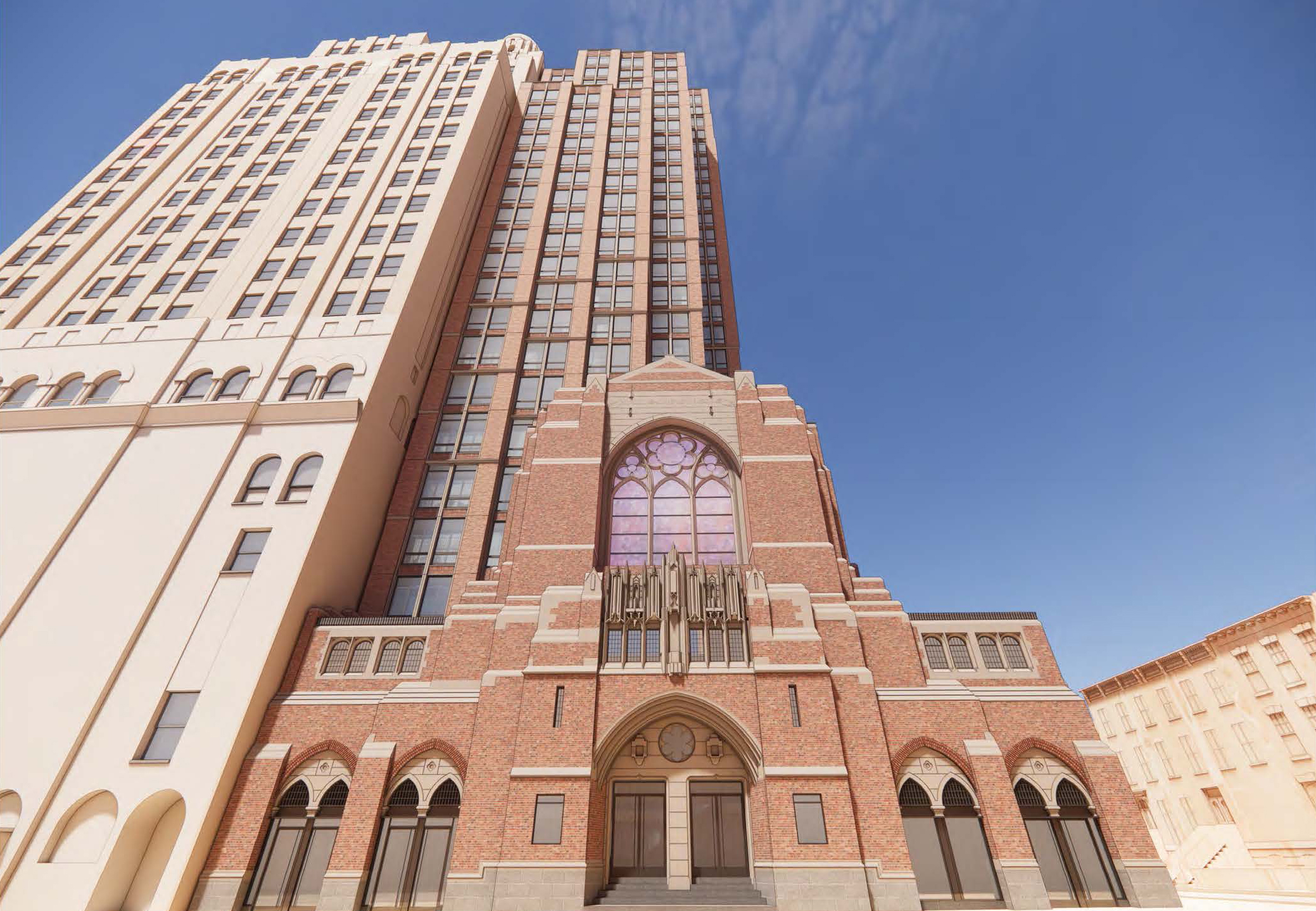Subprime Loans, The Root of All (Market) Evil
Harry Koza, columnist for Canada’s Globe and Mail, thinks that, contrary to the recent upswing in sentiment, the U.S real estate market is only in the first stage of a “Triple Waterfall Event” that will end in disaster. The root of the problem? The oft-maligned sub prime market. Some stats he serves up: – From…


Harry Koza, columnist for Canada’s Globe and Mail, thinks that, contrary to the recent upswing in sentiment, the U.S real estate market is only in the first stage of a “Triple Waterfall Event” that will end in disaster. The root of the problem? The oft-maligned sub prime market. Some stats he serves up:
– From 1994 through 2003, subprime mortgage lending grew at an annual rate of 25 per cent, up tenfold in nine years.
– As of September, 2006, 80 per cent of all subprime mortgages were Option ARMs which tend to have huge payment hikes in the third year.
– More than $1 trillion of Option ARMs will have payment jumps in 2007.
– In the third quarter of 2006, 12.5 per cent of all subprime loans were already delinquent on their payments after nine months.
– In the past month or so, seven subprime lenders have gone belly up.
Not a new theory, but those numbers are a little scary.
U.S. Housing Has Potential to Blow Up Real Good [Globe & Mail]
Photo from the Nuclear Weapon Archive





Truly, the problem we face is usury in general. There is a reason the past 100 years have been the most violent in the history of the human race.
What is worse is this: How many wealthy peopel do you know who got that way by inventing something? Or having some unique skill? They either make via legal manipulation, or usury.
If we outlawed usury tomorrow, the wealthy of this city would disappear overnight.
Before I read tons of stupid responses, remember this: These beautiful brownstones were built in the days where cash purchases were common and a lifetime of debt slavery was unheard of. The reason we can’t build brownstones today, is also because of usury.
What if financing was never allowed? How much do you think brownstone values would have increased since 1997? Still 200% or significantly less?
True, NeoGrec, about the RE in London. And it will only go up and up, as London becomes more and more a financial center because they allow easier immigration so it’s not just Londoners buying properties there, it’s people from other countries in Europe. I do think that will happen here, too. Recent headlines have shown the USA is aware London is expanding so rapidly as a financial center because they can more easily bring in the top young talent from other countries. Pretty soon, NYC will start doing something to get more Europeans and Asians to emigrate here to work in banking and financial services. They have to, in order to compete internationally.
Regulation of home lending has gone out the window in the last ten years. Seriously, not saying this is the case in New York, but out West mortgage fraud is practically the standard. People are encouraged to fudge their incomes blatantly and appraisers are encouraged to over value properties. Seller and Buyers often work out cash kickbacks out of the inflated loan.
People really do buy real estate based on all those get rich quick schemes that run late night on television, again not in the case of a two million dollar brownstone, but elsewhere in the country its common.
As for the intelligence of sub-prime mortgage users, in all honesty, most people spend more time researching their 40′ LCD TV set purchases than researching their mortgages, its too confusing for many people. You are also assuming that most of these people are not functionally illiterate. Not to be insulting, but English is a distant second language for many first home purchasers, especially in California.
The sub-prime business is a racket loaded with moral hazard where the lenders have transferred their risk to the broader market and will be happy to close up shop when the sh*t hits the fan.
Again, not talking about New York, but in Cali, Texas, Arizona, it could be the S&L crisis all over again.
I agree with the observation that people who chose ARMs knew what they were getting into. Good grief, my tax accountant has one! She’ll just be refinancing this year is all. Yes, her monthly payments will increase but she was prepared for that going in. Also, interest rates have NOT risen much. They are actually still very moderate and much more affordable that even 6-7 years ago when RE values were growing exponentially. Finally, I still keep comparing the situation in NYC to London where RE is arguably much more expensive relative to average incomes and yet values continue to grow there and where the lack of coop sublet restrictions has created a huge secondary market of buy-to-let properties — one danger we don’t face in NYC.
11:52 is right. My father owns small banks in the Midwest and whether I liked it or not (ha) I got to learn a bit about banking and it is highly highly regulated. The Feds totally step in if a bank is giving out too many loans to financially unqualified people. We saw it happen when we had a corrupt President at one of our banks. Foreclosures certainly happen, but the oversight is intended for it not to happen on a scale that causes collapse of the RE market. Or auto loan market, etc. Anyway that said, I do really really believe people should NOT be pouring so much money into their renovations. Who cares with keeping up with the Joneses, if you can’t pay cash for your gourmet high-end custom kitchen then don’t buy it. Put in an Ikea kitchen with decent GE appliances from Sears. It’ll be lovely, and just as functional. But don’t spend more than your property is worth, in case you had to sell quickly. Buy something that’s at least move-in condition and do your renos gradually over the years. Not all at once.
This debate is so much revisionist history. Had interest rates stayed low (remember 5 year UST notes were at 2% in mid-2003, now they are near 5%), none of the Option ARMs would have reset so much higher. Was that the fault of the banks, brokers, or owners? No. My point is that the buyers took a bet on interest rates and many, unfortunately, lost the payment game as interest rates rose. But many have houses that can be sold for more than when they bought them in. Sure, a lot of people might be heading toward the door at once and lower values, but don’t for a minute think that every sub-prime mortgage will force every borrower into default. In those places where employment is shaky (think rust belt or the Love Canal), you may have a perfect storm: no jobs, interest rates forcing payments higher, and home values falling. In those markets the banks will take big hits…but the home owners loss is limited to their downpayment (often those downpayments were near zero). This is not to minimize the emotional cost of foreclosure. But in NYC the sky is not falling. Real estate is cyclical but, as the traders say, it is a “higher highs and higher lows market”. In other words, if you hold on long enough, the higher trend in prices bails you out.
10:05AM, while I certainly agree the market is ripe for a downfall, I think you’re missing the point of how coops protect the market. Due to the requirements for reserves and higher downpayments, plus the greater level of financial scrutiny, coops shouldn’t (in theory) have any buyers who can barely pay the interest on their mortgages.
Accordingly, even if values plummet, coop buyers should just keep making their payments since they are unlikely to sell at a loss, particularly since they have such large downpayments tied up in the property.
Of course, some people are always forced to sell in a down market for one reason or another (job loss, illness, relocation, divorce) and many coops have gotten looser over time. That being said, I think the likelihood of prices falling to the levels you mention are extremely low.
The reality is, the city we live in today is not the same city you bought into in 1996. Gentrification has made large portions of the city much safer than they were before and the city is also more family-friendly (at least for incredibly wealthy families).
So it’s not a question of the people who were living here making more, but rather wealthier people who normally lived elsewhere feeling more comfortable to live in various areas of the city (e.g., the family that had moved to CT or Westchester stays on the UES, the GV hipster considers Williamsburg or LIC, etc.)
Given these changes, without a massive decline in the economy or a big increase in crime or something else that makes NYC a less desirable place I doubt prices will fall by much more than 10-20%. However, even that decline will be more than enough to make things rough around here!
Just want to suggest that anyone who wants to opine on sub-prime lending read up on what sub-prime lending actually is. To posit that lending to those who would not otherwise qualify for credit involves “targeting” suggests a lack of education regarding the regulation of financial marketing. Banking is a highly, highly, HIGHLY regulated industry with many watchdog groups.
And let’s try and avoid turning everyone into a victim. It’s paternalistic and downright condescending. Don’t look down your nose on people who made financial decisions you might not have made (e.g., signed on a line on a mortgage whose rates would jump). To do so, to assume “oh, these poor people were TRICKED!” (rather than “perhaps their situation in life has made them less risk averse”), is the same as saying, “I am so much smarter than those poor morons.”
They are adults. (Banks don’t lend to twelve year olds.) They made a decision. It differed from the one you would have made. Don’t insult their intelligence by claiming they were preyed upon.